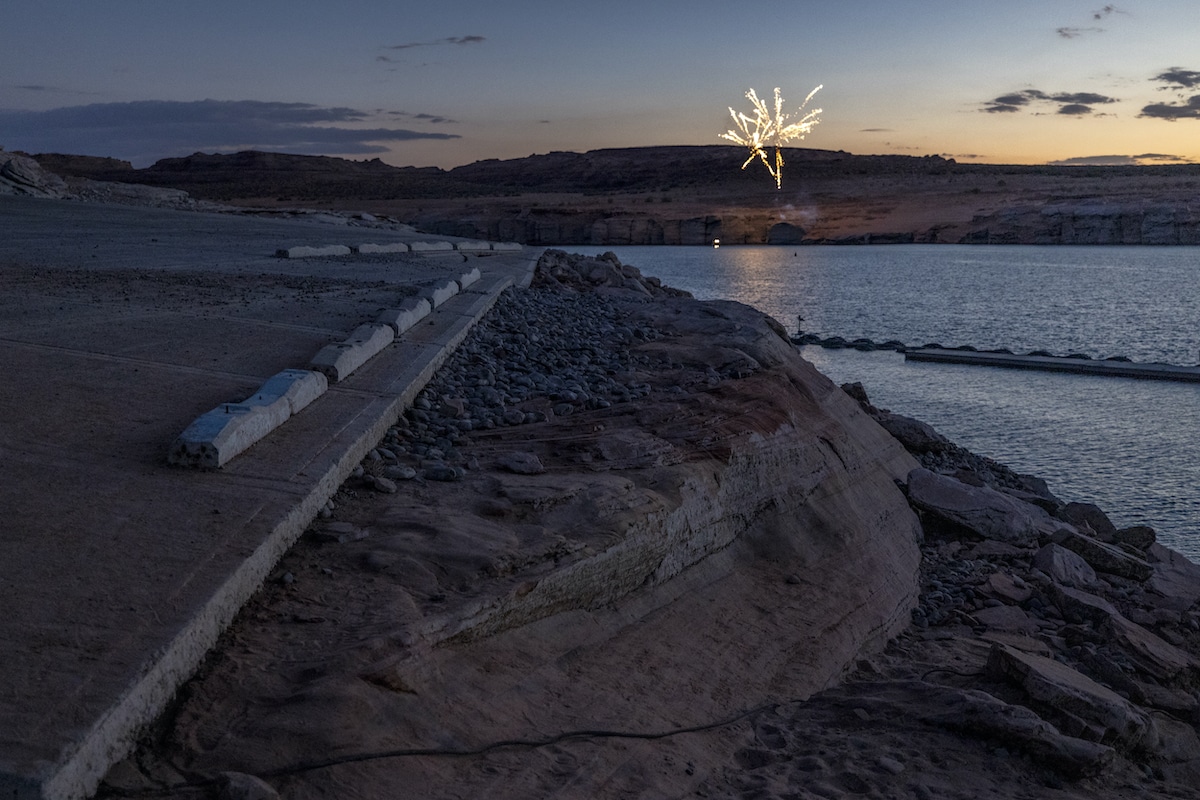Cities Cancel July Fourth Fireworks Amid Wildfire Concerns

 Why you can trust us
Why you can trust us
Founded in 2005 as an Ohio-based environmental newspaper, EcoWatch is a digital platform dedicated to publishing quality, science-based content on environmental issues, causes, and solutions.
Independence Day is coming soon, with celebrations prepared for the entire long weekend leading up to Monday, July 4, 2022. But with droughts and heat waves across the U.S., many cities are canceling fireworks shows for fear of sparking wildfires, along with staffing and supply chain issues related to the ongoing pandemic.
Flagstaff, Arizona is swapping fireworks for a laser light show and will continue with its annual July 4 parade. The mountainous area has already experienced three large wildfires in the spring of 2022 that required thousands of residents to evacuate and destroyed many homes. The city announced its updated Independence Day festivities well in advance to give people time to plan their holiday celebrations.
The popular fireworks display put on annually in northern San Joaquin Valley, California has also been canceled due to an ongoing drought. Local Lake Don Pedro is projected to have a low water level around the holiday.
“The safety of our guests and being good stewards of the land entrusted to us are our highest priorities,” the Don Pedro Recreation Agency said in a statement, as reported by NPR.
Lompoc, California and Castle Rock, Colorado are among other cities canceling fireworks displays for fear of wildfires, yet some other cities nearby will move forward with the pyrotechnic shows.
Despite a recent massive wildfire, several cities in New Mexico will continue hosting fireworks shows, including in Albuquerque and Santa Fe.
But even with canceled shows and more environmentally safe alternatives in place, fire officials are concerned that more individuals will take the celebrations into their own hands.
“We are typically worried about exposure of sparks and fire to homes and dry brush,” Phoenix Fire spokesperson Capt. Evan Gammage said. “We get so many calls around this time of year.”
Aside from avoiding potential wildfires, swapping the pyrotechnics for other options is better for the environment in several ways. Fireworks are not an eco-friendly option for celebrations. For one, many of the professional-grade fireworks are made in and transported from China, equating to a large amount of carbon emissions.
Fireworks also leave behind plastic fragments and hazardous waste when they land, and the perchlorates required to make the fireworks explode contaminate local waterways.
These products contribute to poor air quality as well, especially when used in large amounts in a small time period.
“Fireworks are one of the most unusual sources of pollution in atmosphere; although transient, these pollution episodes are responsible for high concentrations of particles (especially metals and organic compounds) and gases,” a 2007 study explained.
While some slightly “greener” fireworks alternatives are being made, the best option is to skip them altogether. Some better alternatives? Light shows may work, although they can also disrupt local wildlife. Some cities are sticking to parades or live performance events, and individuals can host zero-waste July Fourth celebrations at home.
Subscribe to get exclusive updates in our daily newsletter!
By signing up, you agree to the Terms of Use and Privacy Policy & to receive electronic communications from EcoWatch Media Group, which may include marketing promotions, advertisements and sponsored content.

 233k
233k  41k
41k  Subscribe
Subscribe 




